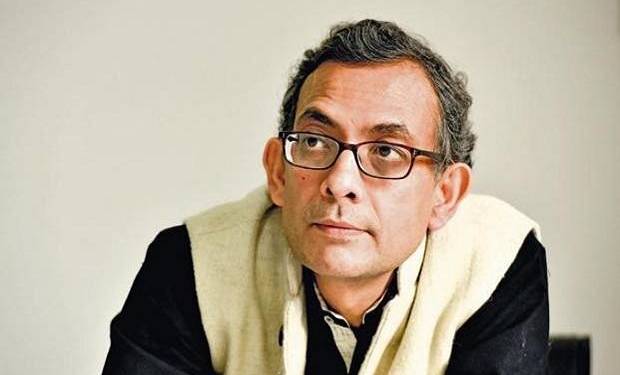The state of Maharashtra has gone through one of the biggest betrayals till date as the Shiv Sena disrespected the electoral mandate and went on to align with its ideological rivals. Now, the newly elected Uddhav Thackeray government seems all set to wreak havoc on the Maharashtra economy as the party mouthpiece, Saamana recently came out showering praise on economist, Abhijit Banerjee.
Coming out in support of the JNU protests, Saamana stated, “This university has given many gems like Abhijit Banerjee who are making India proud. This institution has given many great leaders but none of them were of the right-wing view. The voices being raised to demand their rights must not be suppressed. Rather than fighting with students, the government must try to solve their problem.”
The Shiv Sena hailing Banerjee as a gem comes as a matter of concern for Maharashtra, which is a highly industrialised state and has the highest GSDP among all the states and Union Territories in India.
During the days of the Fadnavis government, the state witnessed unprecedented growth. During his tenure, a plethora of developmental projects were unveiled, putting the state on a course of an ambitious target to become the first Indian state with a trillion-dollar economy by 2025. However, Banerjee represents that economic model which is based on radical socialist ideas and seeks to alleviate poverty through wealth distribution instead of wealth generation.
In fact, Banerjee had also assisted the grand old party in coming up with the ill-conceived NYAY scheme, whereby the Congress had proposed to forcibly take money from businessmen to fund NYAY, the direct cash transfer scheme which was the main poll plank of the Congress. During the Lok Sabha poll campaign, even Sam Pitroda, one of the most powerful people in the Congress party had admitted that the burden of the NYAY scheme would have fallen on the middle class. When asked whether taxes would go up and whether the middle class would be affected by it, Pitroda said, “Taxes may go up but I do not think that’s a major issue”.
Had the Congress come to power and launched the scheme, it would have had a catastrophic impact on the Indian economy. The scheme would have cost around 3.6 lakh crore rupees or 14 per cent of the total government expenditure. In order to fund this disastrous scheme, Congress would have indulged in tax terrorism against the middle class and businesses in the country. Even Abhijit Banerjee, the brain behind the NYAY scheme had admitted that taxes would have been increased to fund the NYAY scheme.
Now, with Shiv Sena showering praise on the Nobel Prize winner, the threat of Maharashtra succumbing to welfare economics looms large. If the Shiv Sena-Congress-NCP government is to emulate Banerjee’s economic model then it is going to be a major cause of worry for the state. Mumbai is the financial capital of India, and Maharashtra, as stated earlier, is one of the most developed states in India. However, any attempt to impose radical socialist ideas upon the state is going to be a nightmare for the industries and businesses active in the state which are the drivers of economic growth in the state.
The Shiv Sena had been created by the Congress to counter unionism in the state. Senior Congress leader, Jairam Ramesh recently said, “We were ideological opponents of Shiv Sena but let’s not forget in 1967 it was SK Patil and VP Naik who were responsible in many ways for the creation of Shiv Sena to break the monopoly of the AITUC and the CITU then trade unions of Bombay [Mumbai].” However, the way Shiv Sena mouthpiece Saamana has eulogised Banerjee, it won’t really come as a surprise if the Uddhav Thackeray government actually pulls back Maharashtra to the days of left-dominated Union politics of the 60s and 70s in Maharashtra.
There have already been ominous signs of the state faltering to the Nehruvian era socialism, and the growth agenda getting derailed. The manner in which the Aarey metro rail car shed project has been suspended by the newly elected Thackeray government already shows that the coalition government is susceptible to populist ideas, and its policies might turn to dust all the good work done by the Fadnavis government. This shows that the newly created government is not going to focus on development, rather it will base its policies on populist measures.
We have seen what the leftist brand of economics dominated by Karl Marx-inspired radical economists, can do to an economy. Venezuela being the latest example which has gone from an oil-rich economy to a rat eating nation as the IMF predicts the inflation in the country will reach 10,000,000% by the end of 2019. With Uddhav Thackeray at the helm of affairs in Maharashtra, the state seems to be unfortunately succumbing to a similar economic model.
























